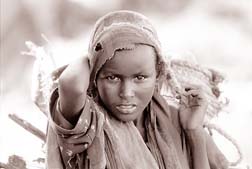
A business does not have the right to claim themselves as an ethical firm if they follow unethical practices such as the use of child labor.
“Across Africa, there are an estimated 80 million child workers, a number that could rise to 100 million by 2015” (Harsch 1). Most of the African children between the ages of 5 and 14 are involved in the production of agriculture goods in many of the countries in Africa. An example can be seen through a BBC article that states, “1.8 million children in West Africa are at risk of abuse through dangerous child labor” in order to produce cocoa for the food company Nestle (Hawksley 1). The question arises: is it ethical to allow child labor to satisfy the needs of food companies such as Nestle? On one hand, agriculture is the backbone of many counties in Africa. In Tanzania alone the agriculture sector contributes more than 40% of the Gross Domestic Product (GDP) (Tanzania 1). Economic growth is therefore essential for these countries in order to compete with the rapidly growing world. On the other hand, every individual has the right of freedom. These young African children have the right to a good quality of life; where they can be educated and represent themselves as future leaders.
Works Cited
Harsch, Ernest. “Child Labour Rooted in Africa’s Poverty.” UN News Center. UN, Oct. 2011. Web. 12 Sept. 2012. <http://www.un.org/en/africarenewal/vol15no3/153chil4.htm>.
Hawksley, Humphrey. “Nestle ‘failing’ on Child Labour Abuse, Says FLA Report.” BBC News. BBC, 29 June 2012. Web. 12 Sept. 2012. <http://www.bbc.co.uk/news/world-africa-18644870>.
“Tanzania National Website.” Tanzania National Website. N.p., n.d. Web. 13 Sept. 2012. <http://www.tanzania.go.tz/livestock.html>.
Picture Reference:
Harsch, Ernest. “Child Labour Rooted in Africa’s Poverty.” UN News Center. UN, Oct. 2011. Web. 12 Sept. 2012. <http://www.un.org/en/africarenewal/vol15no3/153chil4.htm>.
One reply on “Child Labour in Africa”
Thanks for sharing with us keep posting .